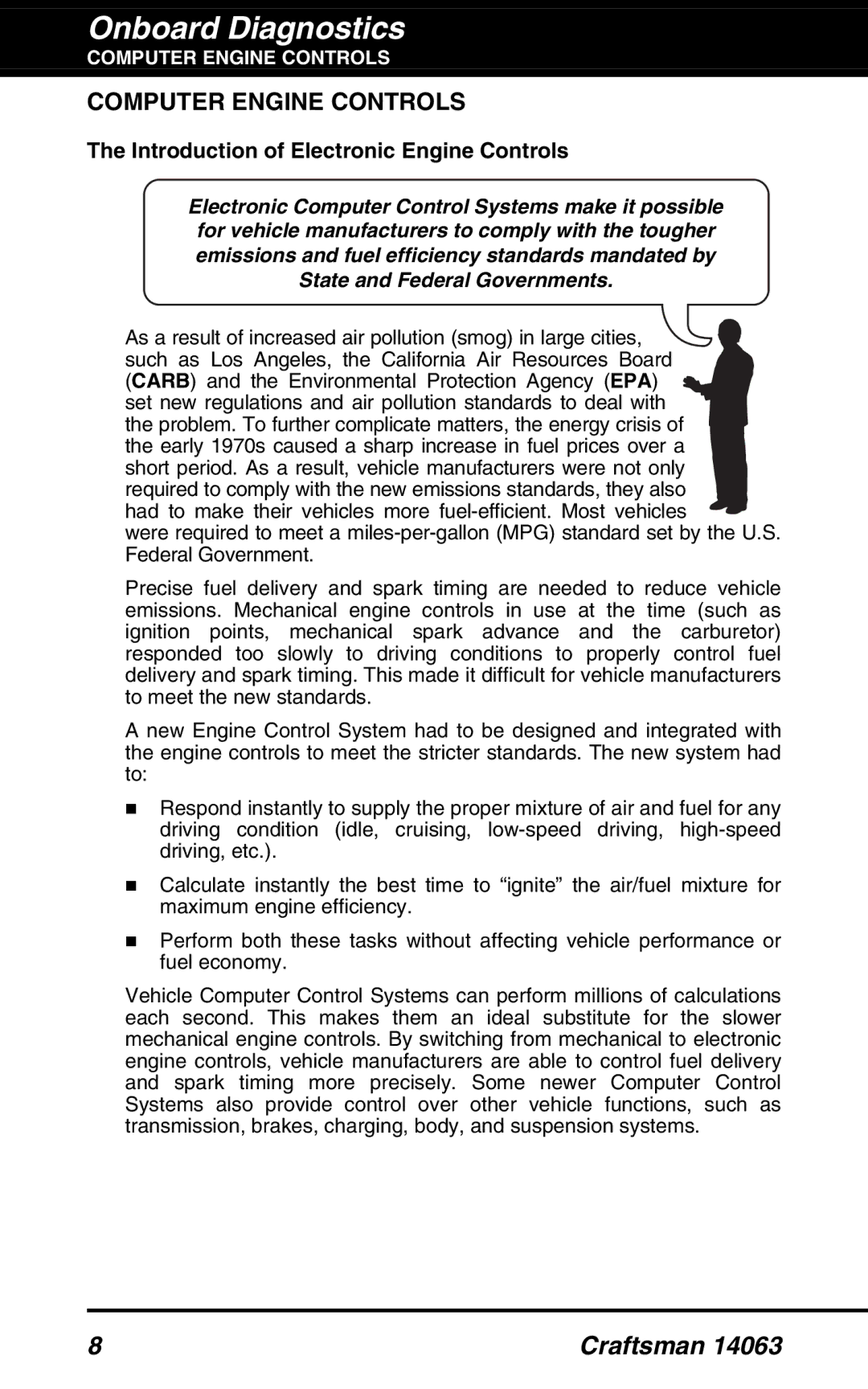
Onboard Diagnostics
COMPUTER ENGINE CONTROLS
COMPUTER ENGINE CONTROLS
The Introduction of Electronic Engine Controls
Electronic Computer Control Systems make it possible for vehicle manufacturers to comply with the tougher emissions and fuel efficiency standards mandated by State and Federal Governments.
As a result of increased air pollution (smog) in large cities, ![]() such as Los Angeles, the California Air Resources Board
such as Los Angeles, the California Air Resources Board ![]()
![]() (CARB) and the Environmental Protection Agency (EPA)
(CARB) and the Environmental Protection Agency (EPA) ![]()
![]()
![]() set new regulations and air pollution standards to deal with
set new regulations and air pollution standards to deal with ![]()
![]() the problem. To further complicate matters, the energy crisis of
the problem. To further complicate matters, the energy crisis of ![]() the early 1970s caused a sharp increase in fuel prices over a short period. As a result, vehicle manufacturers were not only
the early 1970s caused a sharp increase in fuel prices over a short period. As a result, vehicle manufacturers were not only ![]() required to comply with the new emissions standards, they also
required to comply with the new emissions standards, they also
had to make their vehicles more
were required to meet a
Precise fuel delivery and spark timing are needed to reduce vehicle emissions. Mechanical engine controls in use at the time (such as ignition points, mechanical spark advance and the carburetor) responded too slowly to driving conditions to properly control fuel delivery and spark timing. This made it difficult for vehicle manufacturers to meet the new standards.
A new Engine Control System had to be designed and integrated with the engine controls to meet the stricter standards. The new system had to:
Respond instantly to supply the proper mixture of air and fuel for any driving condition (idle, cruising,
Calculate instantly the best time to “ignite” the air/fuel mixture for maximum engine efficiency.
Perform both these tasks without affecting vehicle performance or fuel economy.
Vehicle Computer Control Systems can perform millions of calculations each second. This makes them an ideal substitute for the slower mechanical engine controls. By switching from mechanical to electronic engine controls, vehicle manufacturers are able to control fuel delivery and spark timing more precisely. Some newer Computer Control Systems also provide control over other vehicle functions, such as transmission, brakes, charging, body, and suspension systems.
8 | Craftsman 14063 |
